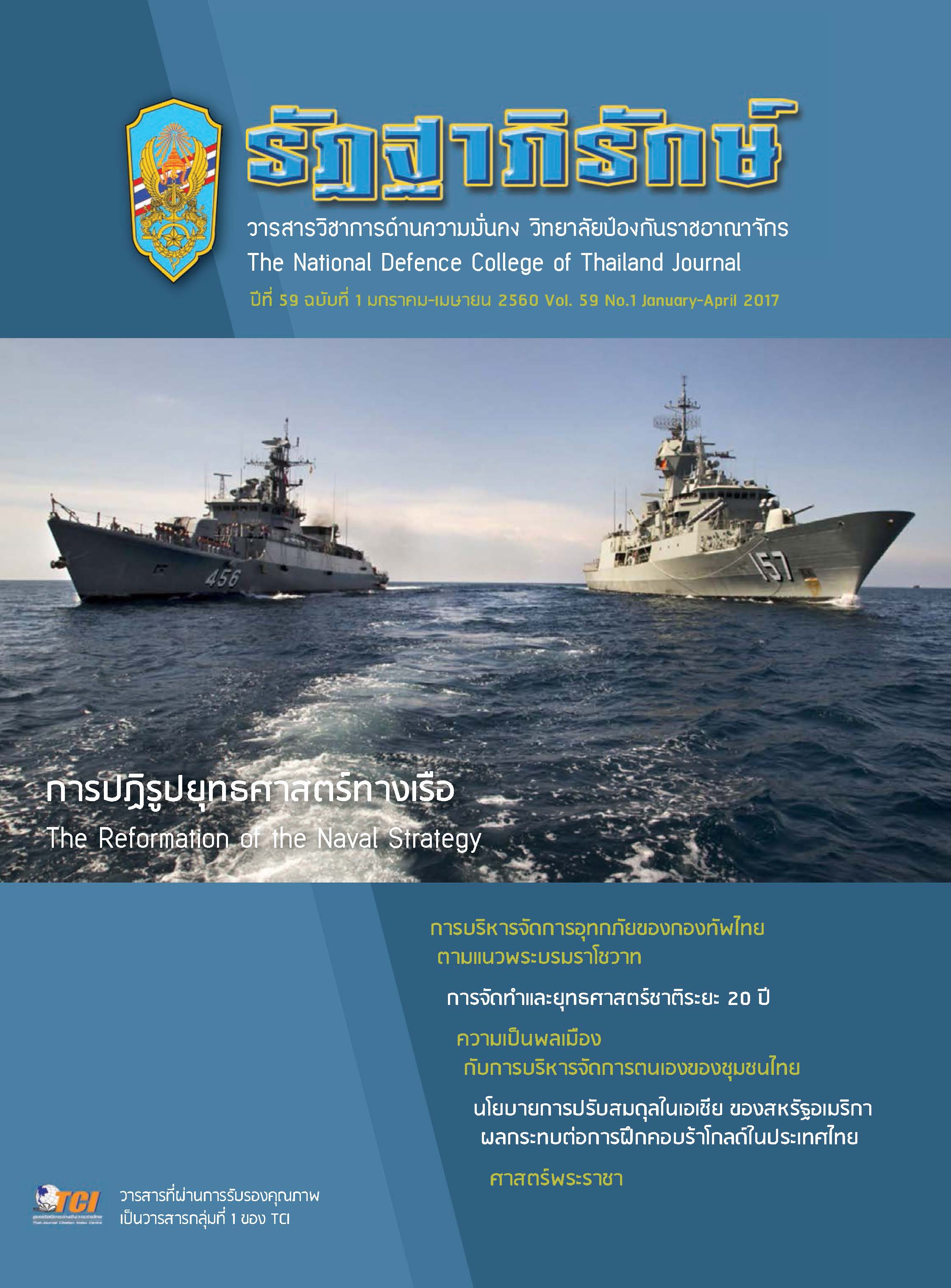การบริหารจัดการอุทกภัยของกองทัพไทยตามแนวพระบรมราโชวาท
คำสำคัญ:
administration, flood disaster, the Royal Thai Armed Forces, the Royal Guidance of His Majesty the King, การบริหารจัดการ, อุทกภัย, กองทัพไทย, พระบรมราโชวาทบทคัดย่อ
Objectives of this research were to study: (1) problems in the flood disaster administration of the Royal Thai Armed Forces according to the Royal Guidance of His Majesty the King, (2) development guidelines for the flood disaster administration of the Royal Thai Armed Forces according to the Royal Guidance of His Majesty the King, and (3) key factors relating to the success of development guidelines for the flood disaster administration of the Royal Thai Armed Forces according to the Royal Guidance of His Majesty the King. In doing so, five relatedly important guidance were utilized; namely, responsibility, readiness, abrupt response, coordination, and communication.
Methodology of this research was designed as a mixed methods research comprised of qualitative research as a primary method, and quantitative research as a supporting method. For qualitative method, which is a non-probability sampling technique, data was collected by conducting 20 in-depth interviews with experts or those with extensive experience in flood disaster administration field. Each interview was a face to face interview, and utilized a semi-structured in-depth interview form. In addition, a focus group of 10 key informants, who were relevant to or specialized in flood disaster administration, was also conducted. For quantitative method, 366 questionnaires were acquired from commanders of all key operation units involved with the flood disaster administration of the Royal Thai Armed Forces. And, descriptive statistics was applied to analyze percentage, arithmetic mean, and standard deviation.
Results of this research were (1) key problems that caused the Royal Thai Armed Forces to be incapable of assisting flood disaster victims in an enough thorough and timely manner were in the area of the abrupt response, which composed of the lack of suitable rapid response units, obsolete early warning and assistance request systems, and the delay of disaster zone declarations; (2) development guidelines proposed in this research were: to develop sufficient rapid response units both in terms of quantity and capability, to enhance the early warning and assistance request systems, and to improve disaster zone declaration process; and (3) key factors relating to the success of development guidelines were comprised of external factors—government’s policy and people’s participation—and internal factors—the armed forces’ policy and budgets. In addition, to simplify the communication and make it easy to remember, the researcher proposed an important model called “WS-PARAGON” comprised of: Watchful policy, Social Participation, Planning, Authority, Readiness, Abrupt response, Good command and control, Operational capabilities, and Neutrality.
ดาวน์โหลด
เผยแพร่แล้ว
ฉบับ
ประเภทบทความ
สัญญาอนุญาต
บทความ ข้อเขียน หรือความคิดเห็นในนิตยสารนี้เป็นของผู้เขียน ไม่ผูกพันกับวิทยาลัย ป้องกันราชอาณาจักรและทางราชการแต่อย่างใด



